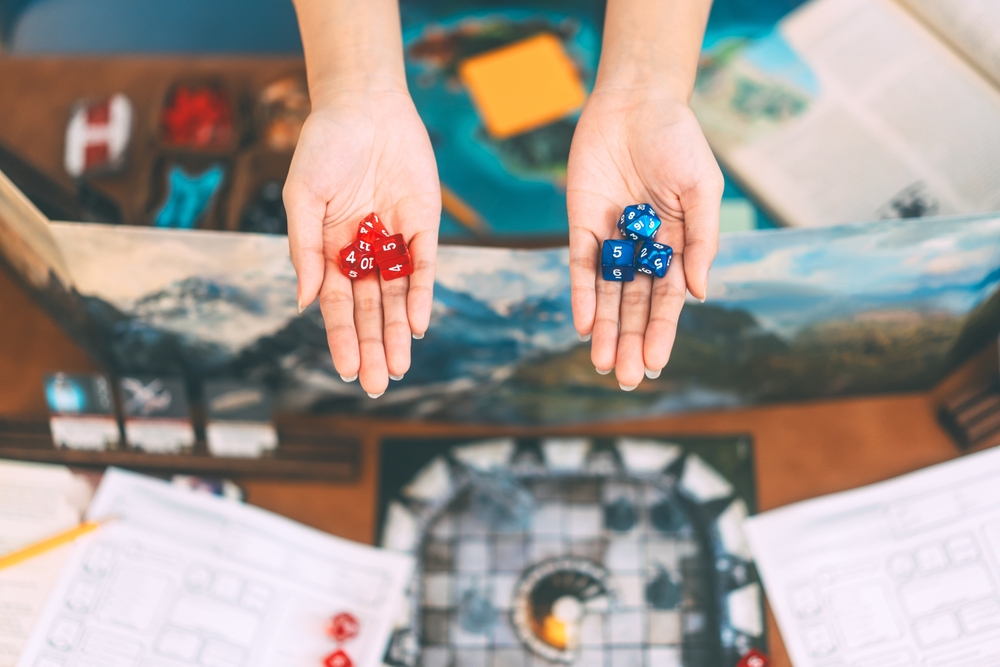The Benefits of Playing Tabletop Games for Mental Health

Tabletop gaming has long been a popular pastime, offering players a chance to immerse themselves in various worlds and scenarios. However, beyond the sheer fun and entertainment, tabletop games can provide significant mental health benefits. In this blog, we’ll explore how tabletop gaming can positively impact mental health, including aspects such as stress reduction, social connection, cognitive enhancement, and more.
Stress Reduction and Relaxation
Engaging in Mindful Play
Tabletop games offer a unique form of mindful play. Unlike more passive entertainment forms, such as watching TV, tabletop gaming requires active participation and focus. This engagement can help shift your mind away from everyday stressors, providing a mental break. The concentration required to play games can lead to a state of flow, which is known for its stress-relieving qualities. Players can experience a sense of immersion and detachment from their usual worries, leading to reduced stress levels.
Structured Escapism
Many tabletop games involve fantastical elements or complex scenarios that allow players to escape their everyday realities. This form of structured escapism can be particularly beneficial for mental health, providing a temporary break from real-life challenges. By engaging in a game’s narrative or problem-solving aspects, players can momentarily set aside their personal concerns and experience relaxation.
Social Connection and Support
Building and Strengthening Relationships
Tabletop gaming is inherently social. Whether playing with family, friends, or new acquaintances, these games provide a platform for social interaction. Positive social connections are crucial for mental well-being, and tabletop games facilitate meaningful interactions. They encourage teamwork, communication, and shared experiences, which can strengthen relationships and build a sense of community.
Combatting Loneliness
For individuals who may experience loneliness or social isolation, tabletop games can offer a sense of belonging. Regular gaming sessions create opportunities for consistent social engagement, helping players feel more connected and less isolated. This social aspect of gaming is particularly beneficial for mental health, as it provides regular, structured opportunities for social interaction.
Cognitive Enhancement
Improving Problem-Solving Skills
Many tabletop games involve strategic thinking and problem-solving. These cognitive challenges can stimulate mental processes, enhancing problem-solving skills and critical thinking. Regular engagement in such games can keep the mind sharp and improve cognitive functions. Players often need to devise strategies, anticipate opponents’ moves, and make decisions under pressure, which contributes to mental agility.
Enhancing Memory and Focus
Tabletop games frequently involve complex rules and extensive narratives, requiring players to remember details and stay focused. This mental exercise can improve memory retention and concentration. The need to track various aspects of the game, such as character abilities, game progress, and strategy, can provide a beneficial cognitive workout.
Emotional Regulation and Resilience
Developing Coping Strategies
Tabletop games often involve challenges and setbacks, providing players with opportunities to develop coping strategies. The process of overcoming in-game obstacles can translate to real-life resilience. Players learn to manage frustration, adapt to changing circumstances, and persevere despite difficulties, which can positively impact emotional regulation and resilience.
Boosting Self-Esteem and Confidence
Achieving success in tabletop games can provide a sense of accomplishment and boost self-esteem. The ability to overcome challenges and achieve goals within a game can translate to increased confidence in real-life situations. This improved self-esteem can have a positive effect on mental health, enhancing overall well-being.
Creativity and Imagination
Fostering Creative Thinking
Many tabletop games encourage creativity and imaginative thinking. Whether through role-playing scenarios, creating strategies, or building fictional worlds, players have the opportunity to exercise their creativity. This creative outlet can be therapeutic, allowing individuals to explore new ideas and perspectives, which is beneficial for mental health.
Providing a Safe Space for Expression
Tabletop games often involve characters and narratives that allow players to explore different aspects of themselves. This can provide a safe space for self-expression and emotional exploration. By engaging with diverse characters and scenarios, players can gain insights into their own emotions and experiences, contributing to personal growth and emotional well-being.
Conclusion
Tabletop gaming is more than just a recreational activity; it offers numerous mental health benefits. From stress reduction and relaxation to social connection and cognitive enhancement, the advantages of playing tabletop games are diverse and impactful. By engaging in tabletop gaming, individuals can experience improved emotional regulation, enhanced creativity, and stronger social bonds. So next time you sit down for a game, remember that you’re not just having fun—you’re also supporting your mental health.
Need Tabletop Games Near You?
Imperial Outpost Games is your one-stop shop for all things tabletop gaming. With a wide selection of board games, miniatures, and hobby supplies, we cater to all types of gamers. Our family-friendly store features games for children, families, and parties, making it the perfect spot for game night. As a locally owned business, we also offer a large game room for customers to come in and play their favorite games with friends and other members of the community. Contact us today to learn more about what we can do for you!
